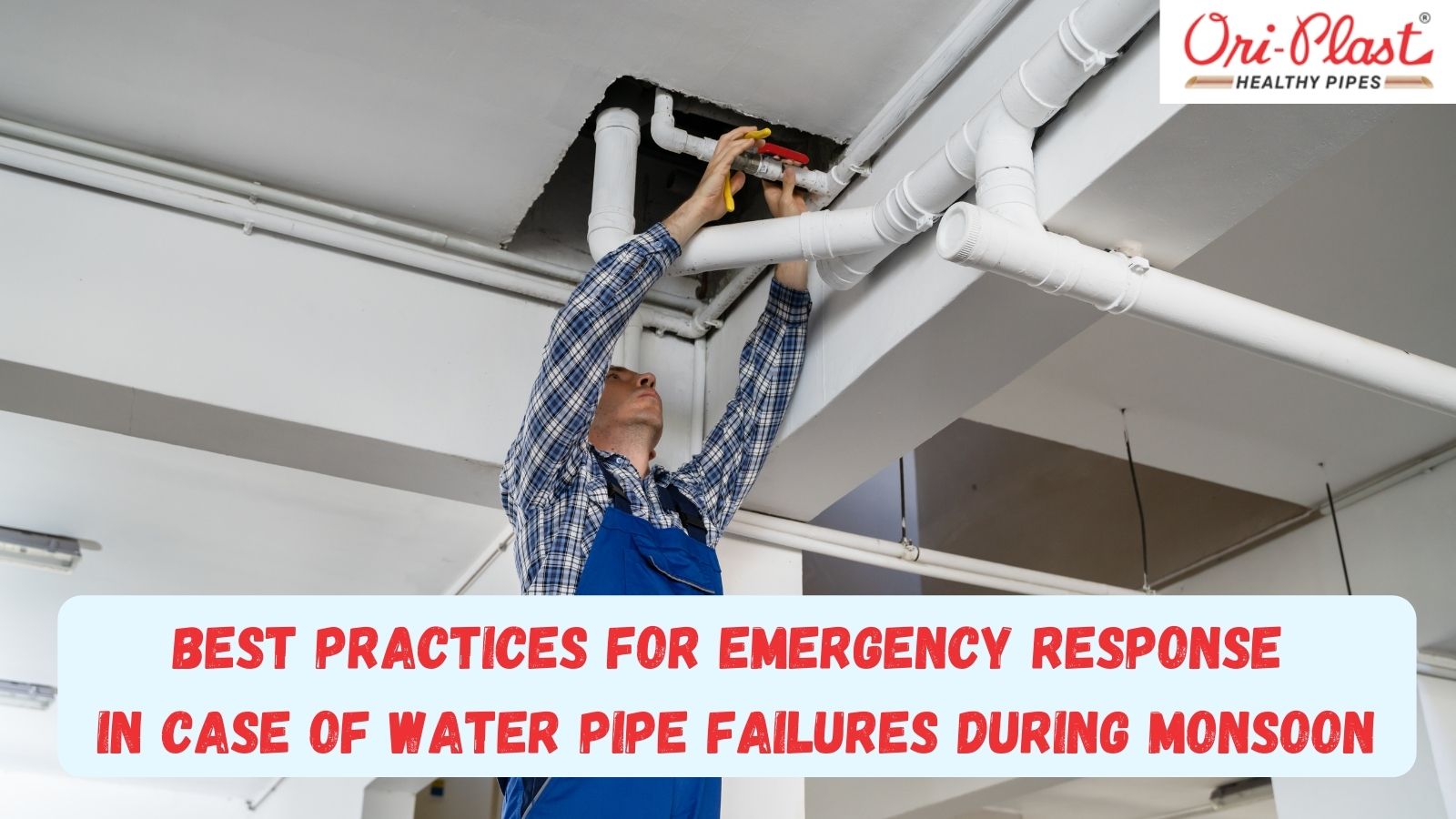Monsoons bring relief from scorching heat and replenish water resources, but they also pose challenges, water pipe failures especially when it comes to the maintenance and operation of water supply systems & especially in monsoon times.
Water pipe failures during the monsoon season can disrupt the water supply, cause significant damage, and pose health risks to the affected communities.
To minimize the impact of such emergencies, it is crucial to have effective emergency response plans and follow best practices.
In this article, we will discuss the best practices for emergency response in case of water pipe failures during monsoons.
Water Pipe Regular Inspections and Maintenance
Regular inspections and maintenance of water supply infrastructure are essential to prevent pipe failures.
It is crucial to identify and address any potential issues before they turn into major problems.
During the monsoon season, the risk of pipe failures increases due to factors like increased water flow, soil erosion, and pressure fluctuations. Therefore, conducting thorough inspections of water pipes, valves, and fittings before the monsoon season is vital. Check out some high-quality healthy water pipes here
Identifying weak points and undertaking necessary repairs or replacements will help in preventing emergencies.
Establishing a Communication Network
A well-established communication network is crucial for efficient emergency response. The responsible authorities should have a clear system in place to receive and respond to reports of pipe failures promptly.
This can be achieved by setting up dedicated helpline numbers, establishing an online reporting system, or utilizing mobile applications.
Additionally, it is important to inform the general public about the contact details for reporting emergencies, ensuring that the information is easily accessible and widely disseminated.
Emergency Response Training
Providing training to the personnel involved in emergency response is vital for an effective and coordinated approach.
Conducting regular training sessions for water department staff, first responders, and relevant stakeholders will help in enhancing their skills and preparedness.
Training should cover aspects such as leak detection, shutting off the water supply, temporary repairs, and coordination with other agencies.
Additionally, conducting mock drills and simulations during the monsoon season will familiarize the responders with real-life scenarios and improve their response time and decision-making abilities.
Rapid Response and Temporary Repairs
When a water pipe failure occurs during the monsoon season, a rapid response is essential to minimize the impact.
The first step is to shut off the water supply to the affected area to prevent further damage and flooding.
Trained personnel should be ready to respond quickly to reports of pipe failures and have the necessary tools and equipment readily available.
Temporary repairs should be carried out promptly to restore the water supply while permanent repairs are being planned and executed.
Collaborative Approach
Dealing with water pipe failures during monsoons requires a collaborative approach involving multiple stakeholders.
Effective coordination between the water department, local authorities, emergency services, and utility companies is crucial.
Regular meetings, sharing of information, and joint planning will help in streamlining the emergency response efforts.
It is important to establish clear roles and responsibilities for each agency to avoid confusion and ensure a smooth response.
Public Awareness and Education
Creating public awareness and educating the community about the risks and actions to take during water pipe failures is crucial.
Regular awareness campaigns, community meetings, and distribution of informational pamphlets can help in preparing the public for emergencies.
Educating the public about the importance of conserving water during monsoons and reporting any signs of pipe failures promptly will aid in mitigating the impact of emergencies.
Data Monitoring and Analysis
Monitoring and analyzing data related to water supply systems can provide valuable insights for proactive maintenance and reducing the risk of pipe failures.
Implementing a robust data monitoring system that tracks water flow, pressure, and other relevant parameters will help in detecting anomalies and addressing potential issues before they escalate.
Regular data analysis can identify patterns, predict vulnerable areas, and guide targeted maintenance efforts.
Infrastructure Resilience
Building resilient infrastructure is key to minimizing the impact of water pipe failures during monsoons.
Investing in high-quality materials, proper installation techniques, and designing water supply systems to withstand extreme weather conditions can significantly reduce the risk of failures.
Additionally, implementing redundancy measures such as backup supply sources and alternative routes can help in maintaining water supply during emergencies.
Conclusion
Water pipe failures during monsoons can have severe consequences, affecting the water supply, infrastructure, and public health.
By following the best practices outlined above, including regular inspections and maintenance, establishing a robust communication network, providing emergency response training, and fostering collaboration among stakeholders, the impact of such emergencies can be minimized.
It is crucial for water departments, local authorities, and communities to work together and be well-prepared to effectively respond to water pipe failures during the monsoon season.




